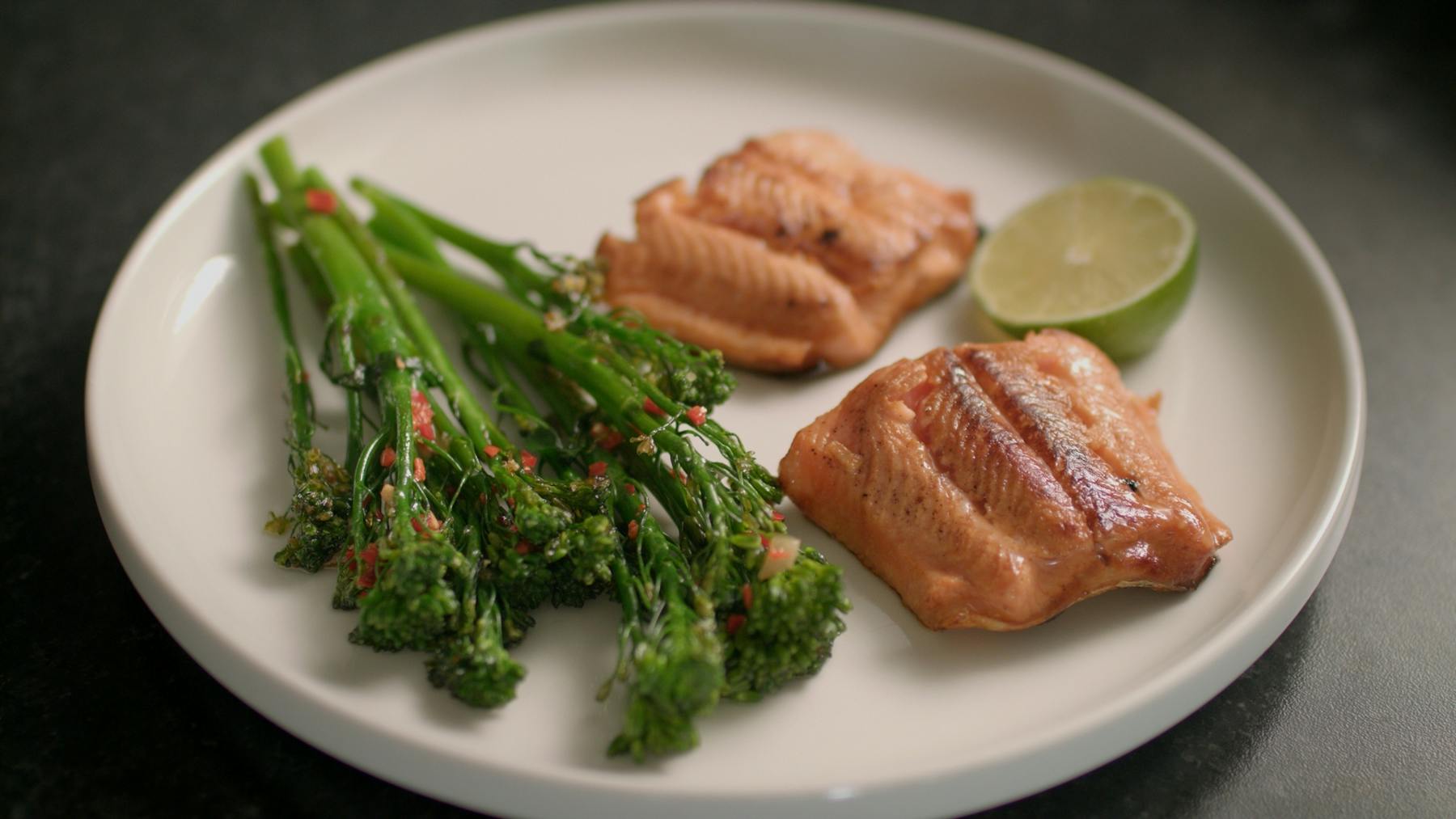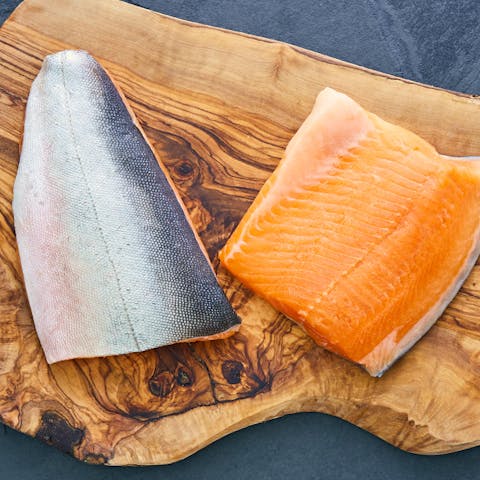
Sustainably raised Icelandic Arctic Char is the mild and buttery fish you didn’t know you were missing.
Sustainably Raised Arctic Char
Found in the deep and icy waters of glacial lakes and arctic coastal waters, Arctic Char is closely related to both salmon and trout — ranging from a light pink to deep red in color, with a mild, buttery taste and silky-smooth texture. Well-suited for aquaculture, Arctic Char is both delicious and sustainable, a truly versatile fish that’s gaining in popularity around the world. Learn more about this ASC-certified fish here.

Lava Rock Purification, ASC-Certified
Matorka, an Icelandic company founded in 2010, raises Arctic Char using a land-based, partially recirculating aquaculture system (PRAS) that pulls water deep from underground sources, which is then filtered through lava rock and reused multiple times through the system’s tanks. The pure volcanic filtered water keeps the fish’s habitat free of bacteria and parasites, so no antibiotics or hormones are ever needed or used.
Designed to prevent diseases and escapes into the wild, Matorka's eco-friendly system dramatically reduces the impact on the natural marine environment and population. All of their efforts have earned them the Aquaculture Stewardship Council’s (ASC) stamp of approval — a well-respected organization that certifies environmentally and socially responsibly farmed seafood.

Certified Carbon Neutral
Matorka is powered completely by clean geothermal energy — one of the main energy sources in Iceland — and the water they use is pumped through a gravity-flow system, making Matorka a leader in sustainable practices. Their feed is also sourced locally from neighboring Icelandic fisheries, further reducing their carbon footprint.
Few farms have access to this kind of feed (most are soy meal based), but Matorka’s is made mainly of marine protein and oils and based on the natural diet of Arctic Char. The healthier feed translates directly to the taste and health of the fish — Matorka’s Arctic Char is high in vitamin D and omega-3s, which also help it stay incredibly moist when cooking.

What is Aquaculture?
Aquaculture is the farming of fish under controlled conditions and can be contrasted with commercial fishing, which is the harvesting of wild fish. Marine aquaculture is vital for supporting the world’s seafood production (supplying more than 50 percent of it) as well as rebuilding protected species, restoring habitats and enhancing coastal resilience.



